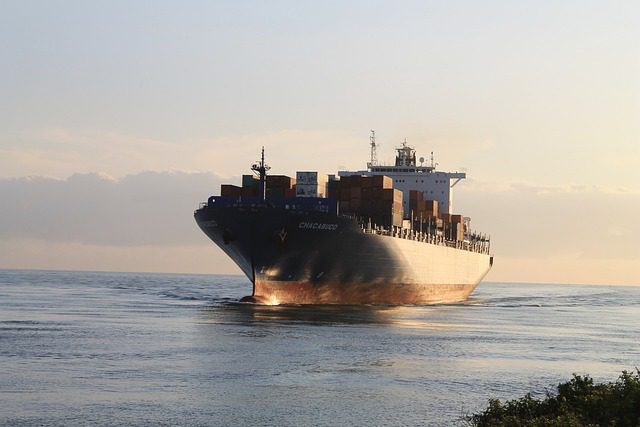In international trade, understanding the terms of shipment is crucial to ensure that both parties involved are on the same page regarding their responsibilities and liabilities. This is where INCOTERMS come into play.
INCOTERMS, or International Commercial Terms, are a set of standardized trade terms used in international transactions to clearly define the tasks, costs, and risks associated with the transportation and delivery of goods. They were developed by the International Chamber of Commerce (ICC) in 1936 and have been updated periodically to reflect changes in the global trade environment.
I. The Purpose of INCOTERMS
The primary purpose of INCOTERMS is to ensure that both the buyer and the seller have a clear understanding of the obligations, risks, and costs associated with the transaction. By specifying the responsibilities of each party, misunderstandings and disputes can be minimized which helps to prevent misunderstandings and disputes between the parties involved..
INCOTERMS, or International Commercial Terms, are a set of standard trade terms that define the obligations, risks, and costs involved in the delivery of goods from sellers to buyers. These terms are recognized and used worldwide, and they help to facilitate international trade by providing a common language for buyers and sellers to communicate about shipping and delivery.
The purpose of INCOTERMS is to clarify the responsibilities and obligations of both the buyer and seller in an international sale transaction. They establish clear rules for the delivery of goods, the transfer of risk, and the allocation of costs,
INCOTERMS help to define:
- The point at which the risk of loss or damage to the goods transfers from the seller to the buyer
- The division of costs between the seller and the buyer
- The point at which the seller’s obligations end and the buyer’s obligations begin
II. Types of INCOTERMS
There are 11 INCOTERMS currently in use, each of which represents a different set of responsibilities and liabilities for the buyer and the seller. They are:
| INCOTERM | Description |
|---|---|
| EXW | Ex Works |
| FCA | Free Carrier |
| CPT | Carriage Paid To |
| CIP | Carriage and Insurance Paid To |
| DAT | Delivered At Terminal |
| DAP | Delivered At Place |
| DDP | Delivered Duty Paid |
| FAS | Free Alongside Ship |
| FOB | Free On Board |
| CFR | Cost and Freight |
| CIF | Cost, Insurance, and Freight |
III. Using INCOTERMS in International Trade
It is essential for both parties to agree on the INCOTERM that will govern the transaction. The chosen INCOTERM should be included in the sales contract or the purchase order to avoid any misunderstandings or disputes.
Using INCOTERMS in international trade is essential for ensuring that the transaction is conducted smoothly and effectively. By using these standardized trade terms, both buyers and sellers can have a clear understanding of their responsibilities, risks, and costs throughout the entire shipping and delivery process.
One of the key benefits of using INCOTERMS is that they help to reduce the risk of misunderstandings or disputes between parties involved in the transaction. For example, if a buyer and seller agree to use the EXW (Ex Works) INCOTERM, the seller is responsible for making the goods available at their premises, while the buyer is responsible for all other costs and risks associated with the shipment. Both parties clearly understand their obligations, and there is little room for confusion or disagreements.
Another benefit of using INCOTERMS is that they provide a common language for buyers and sellers to communicate about shipping and delivery. This is especially important in international trade, where parties may be located in different countries and have different legal systems and business practices. By using standardized trade terms, parties can communicate effectively and efficiently, without the need for complex negotiations or extensive legal documentation.

Before selecting an INCOTERM, both parties should consider several factors, such as:
- The nature of the goods being shipped
- The transportation mode
- The distance between the two locations
- The insurance coverage required
- The costs associated with the transaction
IV. Common Mistakes in Using INCOTERMS
Despite the importance of INCOTERMS, many businesses still make mistakes when using them. Some of the most common mistakes include selecting the wrong INCOTERM, lack of clarity in the terms, and failure to communicate effectively with the other party.
- Failing to choose the appropriate INCOTERM for the transaction: Each INCOTERM is designed for specific situations, and choosing the wrong one can lead to confusion or unexpected costs. It’s important to carefully consider the needs of the transaction and select the INCOTERM that best fits those needs.
- Assuming that INCOTERMS cover all aspects of the transaction: INCOTERMS only cover the terms of delivery and the allocation of costs and risks between buyer and seller. Other aspects of the transaction, such as payment terms and product specifications, should be detailed in a separate contract.
- Failing to clearly communicate the chosen INCOTERM to all parties involved: All parties involved in the transaction, including carriers and insurance providers, should be aware of the INCOTERM that has been selected and what it entails.
- Not understanding the implications of the chosen INCOTERM: It’s important to understand the obligations and responsibilities associated with the chosen INCOTERM, including who is responsible for loading and unloading goods, arranging transportation, and paying for insurance.
- Failing to properly document the transaction: All aspects of the transaction, including the chosen INCOTERM, should be documented in writing to avoid misunderstandings or disputes in the future.
By avoiding these common mistakes, parties involved in international trade can ensure that their transactions are conducted smoothly and efficiently, with a clear understanding of their responsibilities and costs.
V. Factors to Consider When Choosing INCOTERMS
When choosing INCOTERMS, several factors should be considered, such as the type of goods being shipped, the location of the parties involved, and the risks associated with transporting the goods.
- Mode of Transportation: The chosen INCOTERM should be appropriate for the mode of transportation being used to transport the goods. For example, some INCOTERMS are designed for use in maritime transport, while others are better suited for air freight or road transport.
- Delivery Location: The location where the goods will be delivered should also be considered. If the goods are being delivered to a remote location with limited transportation options, a different INCOTERM may be more appropriate than if the goods are being delivered to a major port or airport.
- Risk Allocation: The allocation of risk between buyer and seller should also be considered when selecting an INCOTERM. If the goods are valuable or delicate, the buyer may prefer an INCOTERM that places more responsibility on the seller for ensuring the safe delivery of the goods.
- Cost Allocation: The allocation of costs between buyer and seller is another important consideration. Depending on the chosen INCOTERM, the seller may be responsible for costs such as transport, insurance, or customs clearance.
- Trade Regulations: The trade regulations of the countries involved in the transaction should also be considered when choosing an INCOTERM. Some countries may have restrictions on certain types of goods or may require specific documentation for import or export.
- Experience and Expertise: The experience and expertise of the parties involved in the transaction should also be taken into account. If one party is unfamiliar with a particular INCOTERM, it may be better to choose a different one to avoid confusion or misunderstandings.
By carefully considering these factors, parties involved in international trade can choose the appropriate INCOTERM for their transaction, ensuring that responsibilities and costs are clearly defined and that the goods are delivered safely and efficiently.
VI. Conclusion
INCOTERMS are essential for any business engaged in international trade. These terms establish the responsibilities and obligations of the buyers and sellers during the shipment of goods and help to prevent misunderstandings and legal disputes. By understanding and using the appropriate INCOTERM for a transaction, businesses can ensure that they are on the same page regarding their responsibilities, costs, and risks.
| Region | Agriculture | Manufacturing | Services | Industry | Total |
|---|---|---|---|---|---|
| North Africa | $22.3B$ | $89.4B$ | $84.1B$ | $70.1B$ | $265.9B$ |
| West Africa | $49.5B$ | $35.1B$ | $5.2B$ | $8.6B$ | $98.5B$ |
| Central Africa | $16.2B$ | $16.3B$ | $20.6B$ | $71B$ | $124B$ |
| East Africa | $8.5B$ | $13.6B$ | $2.7B$ | $2.1B$ | $26.9B$ |
| Southern Africa | $15.7B$ | $114.6B$ | $38.2B$ | $18.2B$ | $186.7B$ |

Team ProdAfrica
team@prodafrica.com